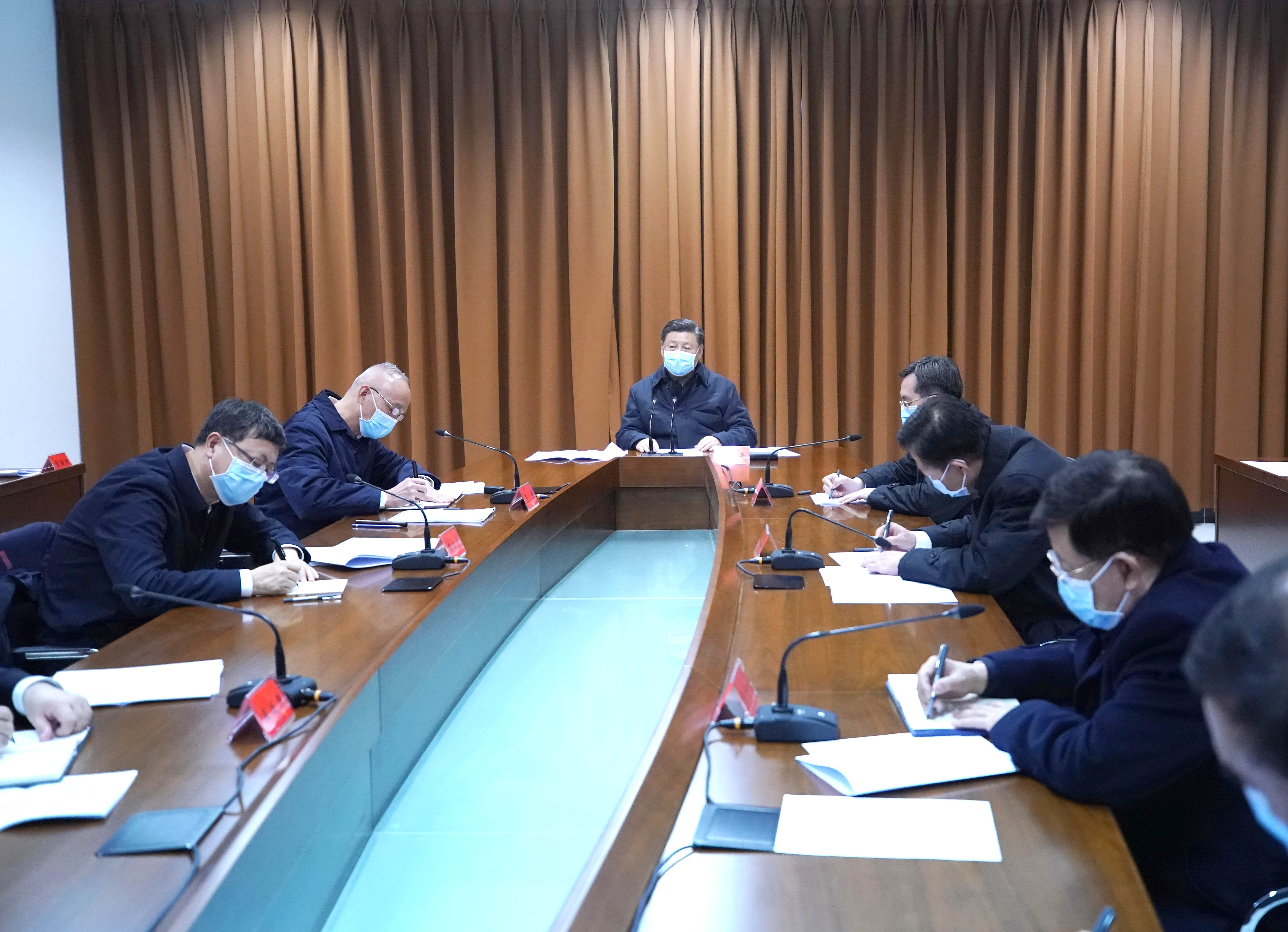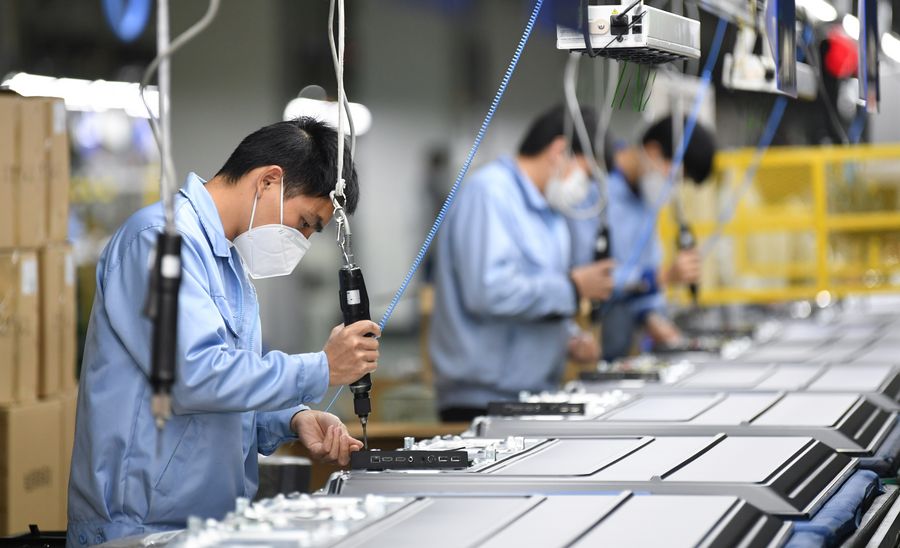
Chinese President Xi Jinping presides over a meeting and listens to report on the epidemic prevention and control work of Beijing at the center for disease control and prevention of Chaoyang District in Beijing, capital of China, on Feb. 10, 2020. Xi on Monday inspected the novel coronavirus pneumonia prevention and control work in Beijing. (Xinhua/Ju Peng)
The Chinese economy is bigger, more resilient in capacity, and more reasonable in structure.
BEIJING, Feb. 11 (Xinhua) -- President Xi Jinping's comments on the Chinese economy have boosted confidence that the world's second-largest economy will come through the novel coronavirus epidemic with great resilience, potential and leeway.
Xi said the fundamentals of China's long-term economic development remain unchanged and the epidemic's impact on the economy is short-lived, during an inspection tour of the epidemic prevention and control work in Beijing on Monday.
He made the comments as China's economy comes under pressure from factories suspending production and reduced consumer spending amid the country's quarantine measures in the battle against the novel coronavirus outbreak.
The epidemic and relevant quarantine measures are believed to have a negative impact on the Chinese economy to some extent.
But now the Chinese economy is bigger, more resilient in capacity, and more reasonable in structure.
China's GDP was less than 14 trillion yuan (around 2.03 trillion U.S. dollars) in 2003 when SARS broke out. Now, it is nearly 100 trillion yuan. The large increase creates more capacity for China to buffer external and internal shocks.
The economy used to be driven by manufacturing and exports. Now, although they produce a substantial portion of the country's GDP, the service economy and digital economy are playing more prominent roles, especially in hedging economic risks and uncertainty amid the epidemic.
After the epidemic is brought under control, retail and consumption activities are expected to heat up and make up for the losses incurred during the quarantine period.

Staff members work at a workshop of Skyworth in Guangzhou, south China's Guangdong Province, Feb. 10, 2020. Chinese authorities are carefully balancing efforts to control the novel coronavirus epidemic and minimize its impact on the economy as millions of people head back to work Monday after an extended holiday. (Xinhua/Deng Hua)
The sound fundamentals of the Chinese economy are unshakable amid the epidemic. But that should not be the excuse for optimism without caution.
During his Monday tour, Xi, also general secretary of the Communist Party of China Central Committee and chairman of the Central Military Commission, called for greater efforts to minimize the impact of the epidemic on the economy and strive to achieve this year's economic and social development goals and tasks.
Supportive measures have been taken. The central bank has added a total of 1.7 trillion yuan into the banking system to boost liquidity and stabilize financial markets.
The central authority rolled out a favorable policy for small and micro-sized businesses, with supplies of power and raw materials, logistic services, and financial assistance put into place to help them resume production soon.
Small-and-micro-sized companies are significant contributors to the Chinese economy, providing around 80 percent of employment, over 60 percent of GDP, and more than half of the tax revenue. Swift and targeted supportive policies should help avert widespread bankruptcies and large-scale layoffs, which are detrimental to Chinese society.
A batch of companies has carefully resumed work, and more will do so in the coming days. Social and economic operations are awakening from their time off due to the epidemic. Confidence should be restored that the coronavirus outbreak will leave the Chinese economy unscathed in the long-run. ■



